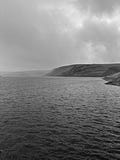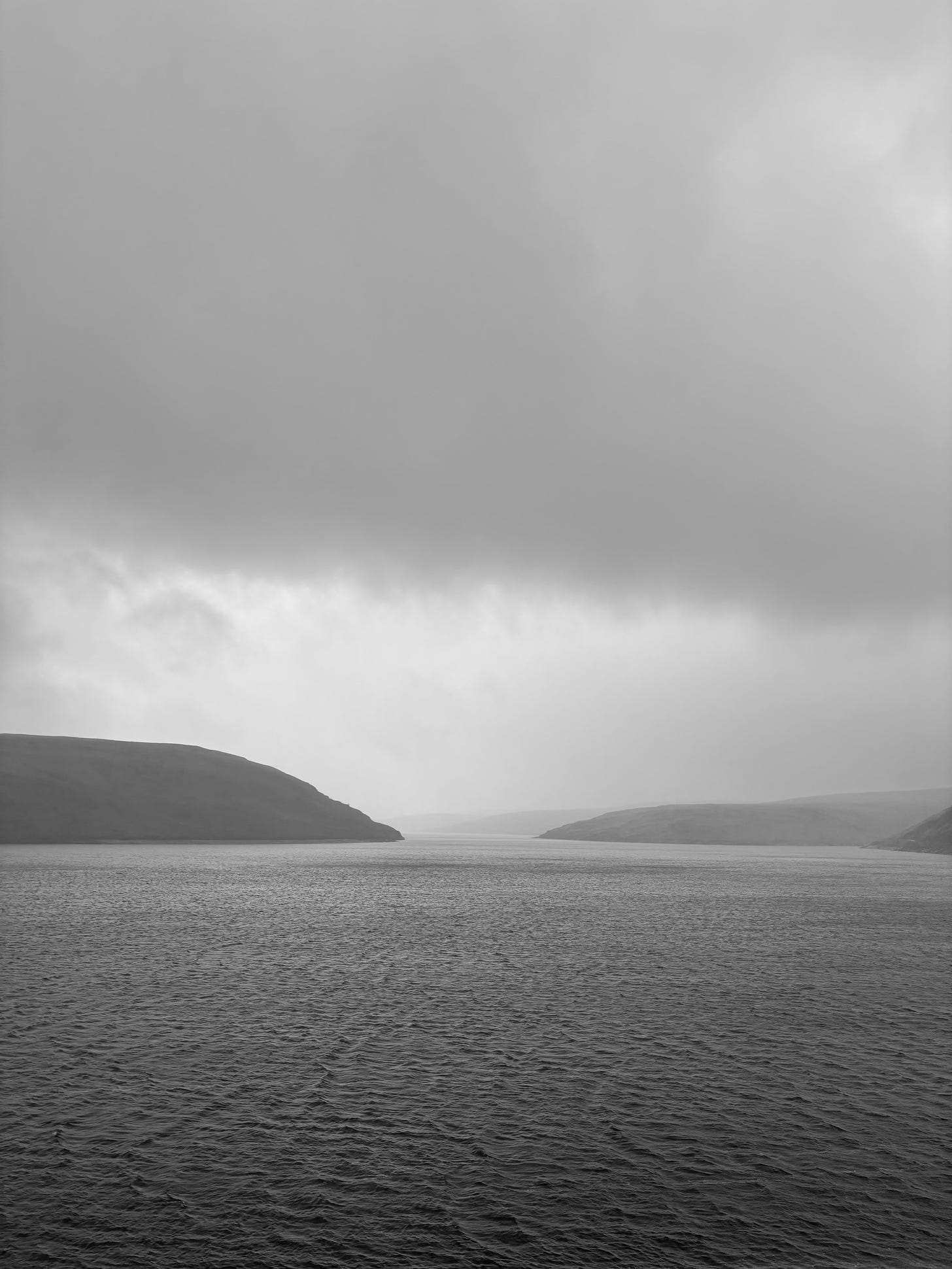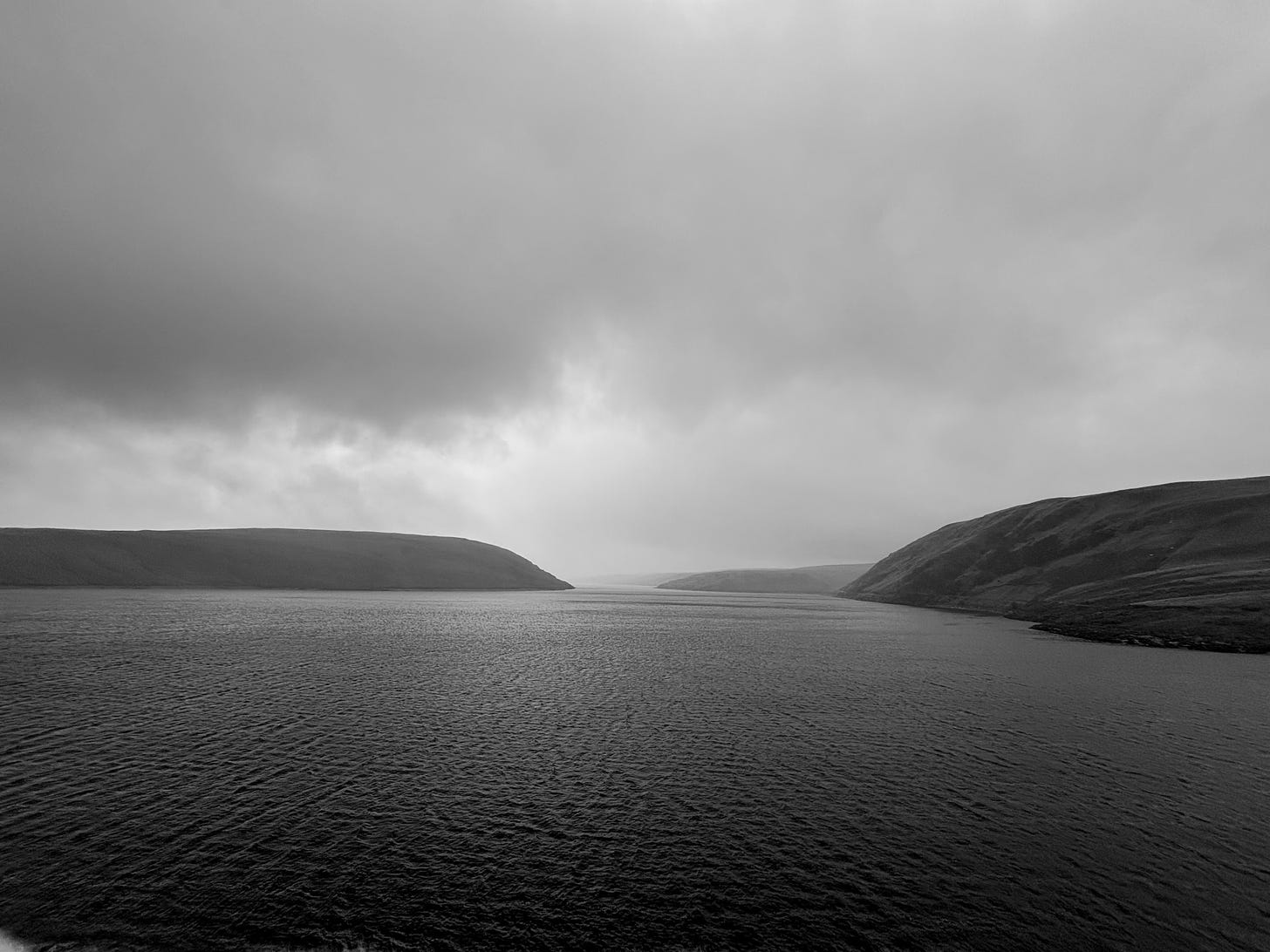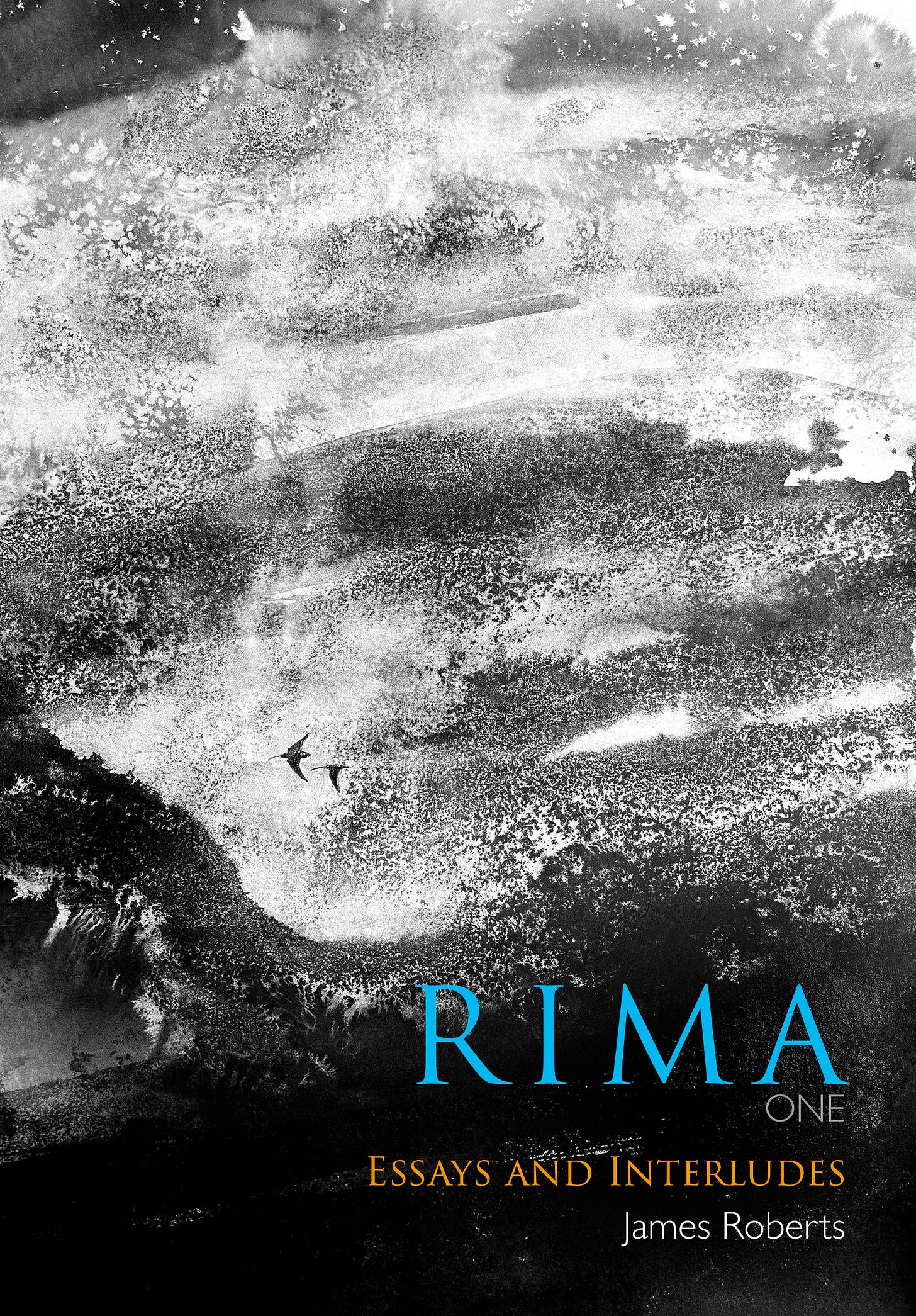Friends,
This week’s story is about deep water, comical near drownings (my own), and the need for quiet. The photographs were taken a couple of weeks ago, on a day of shifting light when I had the Lake District of Wales all to my self. That space!
If you’re a paid subscriber this week’s Wednesday offering was about a favourite Georgia O’Keefe painting which has a similar dreamy tranquility. Next Wednesday I’ll be looking at another picture which is all about that quiet, though this one is set in a small room in a town in The Netherlands.
At the end of this post you’ll find the cover reveal for a new collection of essays which will be emailed to paid subscribers very soon. I’m tinkering with the layout at the moment and making sure it works on all e-readers. This will be a selection of ten essays written over the years, some recent, some not so recent, but all of them linked to the Rima theme of edges and borders. Hope you like the cover and this week’s story.
J
It could have been the last day of summer. It could also have been the first. I crossed the dam at Claerwen beneath a single opening in the clouds which seemed to be apologising for its presence. It frayed, thinned, and vanished into the grey. A hundred feet below there was a farmhouse surrounded by oaks, a little cup of shelter beneath the wind, which I’m sure is constant in that place. House martins and swallows looped and dived along the wall of the dam. The Claerwen river gathered itself from the stone channels beneath the dam and found its ancient scribble of ground. I followed a track leading up the outcrop, which towered above the little farmhouse, and looped back to take pictures of the view, one of the grandest in Wales, hoping to catch that certain slant of light. An hour later, with hundreds of photographs in the bank, I headed for my car in the hammering rain.
Coming back down the hill the reservoir stretched out below. I tried to identify the point where a footpath began up to a remote nature reserve. I’d been told by a few people that it was a long, hard trek to the little oligotrophic lake near the summits, the best place to see birds like golden plovers and curlews. It didn’t seem too far away. Nevertheless I didn’t make it there. This is to do with the ever presence of the reservoir, I’m sure, which is vast and filled, as far as I can tell, only with darkness.
I have a fear of open water which began in childhood. I’m still not sure why, but my parents placed the importance of learning to swim above all things. I was taken to swimming pools from an early age and I learned to swim well, but still I was told to keep away from the edges of canals, lakes, even ponds so shallow I could have walked across without getting my ankles wet. I have no idea why this fear existed, since there had never been anyone in the family’s acquaintance who had drowned and we lived in the most landlocked place on these islands. Being contrary I usually do the opposite of what people tell me to do and I have come close to drowning on a few occasions, most recently last summer when I thought it was a good idea to tie my kayak to the side of a narrowboat on the river Avon while I climbed into it. The kayak flipped, I hit my head on the side of the steel boat and ended up stuck upside down. When I managed to scramble to the surface I got caught in a soup of sucking mud thigh deep and could not move. Luckily a burly fellow had seen me and managed to pull me out. I thanked him, scraped the mud off, corrected my canoe, and did exactly the same thing again, with identical results. He has me labelled, correctly, as an idiot.
When our boys were small we rented a house beside a large reservoir in Limousin, France, which had a swimming beach and a diving pontoon far out in the middle of the lake. One evening our youngest, nattily dressed in full Victorian swimming suit, shark fin float and skull cap, decided to attempt to reach the distant pontoon. My wife and I watched as he slowly shrank to a blueish fin in the huge, dark and utterly empty lake, before remarking to each other that he had not yet learned to swim. We then remembered that we hadn’t brought our own swimming gear with us. And so, I ended up frantically swimming out to him wearing just my underpants, which he seemed delighted about, making me dive in with him several times from the pontoon before I towed the half-human, half-shark 3 year old back to shore. Perhaps my parents were right to teach me the fear of open water.
Claerwen is a quiet place, almost a silent place, that vast expanse of water having nothing to say, except, on the windiest of days, a faint slap-slap at its edges. I have yet to see a bird out on the water, or a fish leap. While walking back to my car I passed a puddle on the path, its surface alive with water boatmen, its shallows wriggling with larvae. Is there more life in a puddle than a reservoir? That is surely not possible, Claerwen is known for its brown trout fishing in the summer months. Nevertheless the dark water feels void, a watery echo of its surroundings: the lonely Cambrian Mountains.
Can mountains and lakes be lonely? Obviously not, though I often use that adjective to describe this part of the world. I have come to think that places which were once forested long for the return of the trees, for the songs of woodland birds, something other than the isolated scream of a peregrine, or the bark of a raven? Reservoirs also make me think this way. They have obscured huge tracts of land which were once teeming with life. Maybe the water remembers what it has drowned: a little river running twisted, braiding over rocks and down waterfalls. Dippers and wagtails feeding among the stones, herons spear-still on the banks.
That day at Claerwen, almost back to my car, I was passed by a line of motorbikes heading along the perimeter track. I watched them weave and bump, shrinking into the distance. The steep slopes channeled the engine noise and the water seemed to trill with it. It was so out of place that noise. The area is known as a dark sky reserve, a place to see stars when the clouds clear for those few moments each month. It seems like a strange marketing decision to me, to promote an experience which is almost never on offer. A quiet reserve, or reservoir, would be very achievable, however. We could go to these places to hear our hearts beat, the lap of water and trill of wind, to watch rainbows appear silently in the air. A reservoir is a sound sink, a place to absorb the noise of modern life. Somewhere which helps us to come back to our senses. There should be signs at the entrances to these places: Quiet please!
Here’s the cover for Rima One. Ten essays about edges, available to paid readers very soon. The painting was completed over many weeks and, given my (very soggy) water, ink and salt method, was so wet at one point it almost turned back to pulp! But in the end it came out rather well and two curlews asked to be part of the scene. I think it works. What do you think? Leave a comment below. The first instalment will be an e-book (I’ll also send a hi-res printable of the painting). I’m itching for it to become a printed book. It will happen!






Love the cover art and the images of the reservoir. Really looking forward to the book of essays.
I often feel a bit spooked by reservoirs. Something not quite right about them, and your words make me think about why that might be. Thank you.